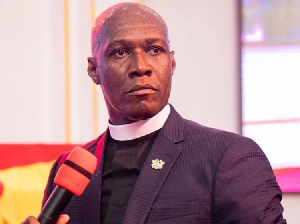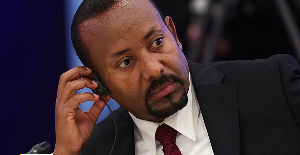At the heels of the current upsurge in oil prices on the international market, the government is exploring the possibility of hedging crude oil prices, as part of measures to reduce the impact of the shock on the economy.
At the heels of the current upsurge in oil prices on the international market, the government is exploring the possibility of hedging crude oil prices, as part of measures to reduce the impact of the shock on the economy.
With the Acting Chief Executive of the National Petroleum Authority, himself a strong believer in the ideology of hedging, are many more who share in this ideology are putting up strong arguments that could persuade government to go hedging.
Oil prices rose to $72 a barrel on Friday amid concerns that massive U.S. fiscal spending would spark inflation down the road, making oil and other commodities attractive investment alternatives.
Benchmark Crude for July delivery rose 77 cents to $72.14 a barrel in Europe in electronic trading on the New York Mercantile Exchange.
After hitting an eight-month high of $73.23 on June 11, oil has lingered above $70 a barrel at the end of last week on investor optimism that the global economy was stabilising from a severe slowdown.
Traders are also buying crude and other commodities as protection against possible inflation and a weaker dollar.
Back home the government has had its hands full trying to justify the recent 30 per cent increase in fuel prices, which saw transport fares also shoot up by some by 17 per cent, which sections of the public say is a clear case of betrayal of faith and trust, as indications by H. E. Professor John Evans Atta Mills were that prices would be reduced when given the mandate to rule.
Meanwhile, Ghana has reached a deal with the Nigerian government, by which the latter would supply Ghana with 60,000 barrels of crude oil per day, on a possible 90-day credit term.
The government is hoping that this new flexible arrangement would help ease the demand for oil, until next year when Ghana starts producing crude-oil in commercial quantities.
Business News of Wednesday, 24 June 2009
Source: Chronicle












